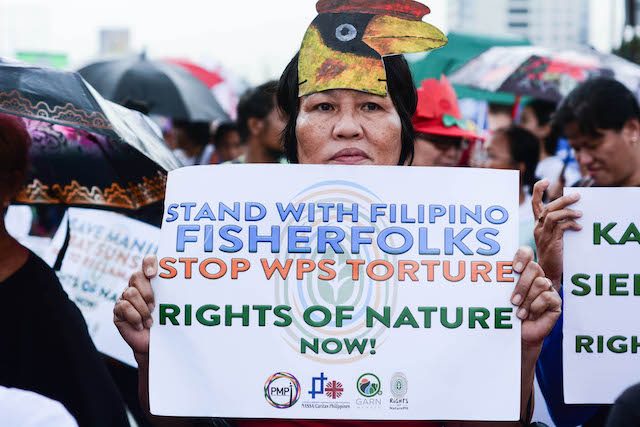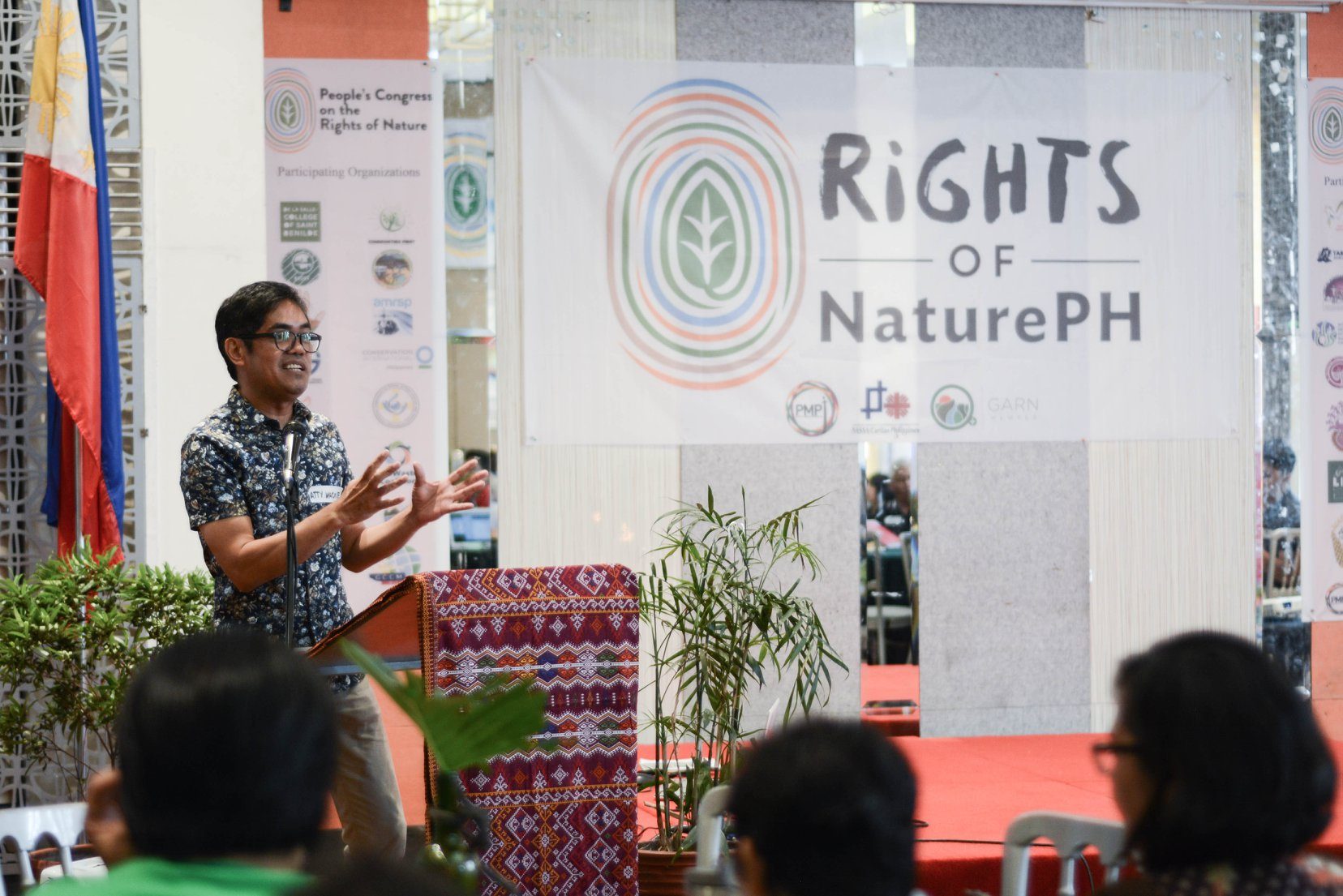SUMMARY
This is AI generated summarization, which may have errors. For context, always refer to the full article.

MANILA, Philippines – “If corporations are given rights by our legal system, why not give legal rights to the ecosystem?” environmental advocate Yolanda Esguerra asked at a recent forum on a proposed measure that seeks to strengthen legal protection for the environment.
Esguerra, Philippine Misereor Partnership Incorporated (PMPI) national coordinator, raised the question before fellow environmental advocates and representatives of civil society and sectoral groups gathered in Quezon City to push for the rights of nature bill on Saturday, July 20.
“Unlike corporations, the environment and [humans] are of the same stature. They exist and co-exist to fulfill their roles in the whole web of life,” she said at the 3-day People’s Congress on the Rights of Nature organized by the PMPI and National Secretariat for Social Action (NASSA)/Caritas Philippines.
The rights of nature bill seeks to provide legal rights to the environment and recognize it as a rights-bearing entity.
PMPI said the proposed bill aims to strengthen and enhance current environmental laws, adding another layer of protection to Philippine ecosystems. (READ: Anti-mining advocates push for ‘rights of nature’ law)
“Ang lalamanin [ng rights of nature bill], ano’ng klaseng behavior ang gusto natin mula sa mga korporasyon, sa gobyerno, ano ang karapatan [ng kalikasan], at ano ang kaukulang kaparusahan kung sakaling hindi mo masunod ang tinatakda ng batas,” said PMPI legal counsel Mario Maderazo.
(What [the rights of nature bill] will contain is the kind of behavior we want from corporations and the government, the rights [of nature], and the corresponding penalty for not following the law.)
Under the rights of nature draft bill, the environment, through representation from concerned communities or environmental advocates, can file a case against violators of its rights. One of its provisions is to create an independent and autonomous government agency that will ensure the implementation of the law, and a trust fund for the recovery of violated ecosystems.

During the forum, environmental lawyer Galahad Pe Benito cited the difficulty in pursuing cases to protect nature under existing laws.
“Kapag magfa-file ka ng kaso representing this poor plant, dismissed po kaagad ‘yan. Bakit? Because the law does not confer it with legal personality (When you file a case representing this poor plant, it immediately gets dismissed. Why? Because law does not confer it with legal personality),” Benito said.
Judy Pasimio of Lilak (Purple Action for Indigenous Women’s Rights), for her part, cited the challenges of pushing for the bill given the violations of human rights under the Duterte government. (READ: Human rights: How to deal with Duterte, the biggest challenge?)
“The rights of nature is actually the promotion of right to life. We have a government here now who does not respect the right to life. How could 55 human rights defenders mostly farmers and indigenous people [push] for their right to life because they depend heavily on the environment?” Pasimio asked.
Though absent from the conference, the offices of Senators Risa Hontiveros and Grace Poe expressed openness in sponsoring the rights of nature bill in the Senate.
The congress is a 3-day series of events aimed to craft a campaign schedule to lobby for the bill from filing to passage. On its last day on Monday, July 22, the People’s Congress on the Rights of Nature joined groups that held protests as President Rodrigo Duterte delivered his 4th State of the Nation Address.
PMPI is a social development and advocacy network of church, non-governmental, and people’s organizations in the Philippines. NASSA/Caritas Philippines is the humanitarian, development and advocacy arm of the Catholic Church in the Philippines. – Rappler.com
Dana Eunise Cruz is a Rappler intern. She is studying journalism at the University of the Philippines College of Mass Communication.
Add a comment
How does this make you feel?
There are no comments yet. Add your comment to start the conversation.